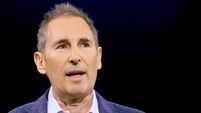Spendthrift Ireland needs to develop new economic masterplan

At that time, there was a feverish rush to jack up prices in many parts of the Irish economy, and that had the ultimate effect of breaking the economy.
The global financial crisis acted as the catalyst for that downturn. It is not hard to find triggers for another one now.
Around 2005, it seemed like no wrong could be committed in the surging Irish economy. Property prices were racing, wage inflation mushroomed, tourism costs rocketed, and borrowings went through the roof.
Anyone over the age of 20 has a good memory of what happened next.
The crushing implosion of the Irish economy lit up emigration rates, drove unemployment in Ireland, cut real and nominal incomes for all amid higher taxes, and collapsed confidence in what Ireland was all about.
I have crystal clear recollections of worrying about my job and our mortgage while watching many of the next generation rush for the flights abroad.
All of that seems to relate to another planet at present. All I hear now is shouting and roaring about the need to provide more debt, more pay, and more services, because the much-maligned Irish economy has dared to lift its head in a search for sustainable recovery.
Hotel prices are accelerating too, and it seems the global tourist is now ready for a bout of price gouging.
The reality check could come in the form of slowing economic growth, which converts into less Exchequer tax revenues amid higher spending.
That then puts the spotlight on the high debt levels that remain over the Irish economy from our sins of the past. Combine these factors to deliver another period of pessimism and rising unemployment.
We should not flirt with the idea of another economic crisis in Ireland. The IMF will be automatically more hostile towards Ireland if called upon again, I suspect.
Germany — where pay restraint, low levels of personal borrowings, and minimal inflation are hallmarks of their economic prowess — will be rightfully disgusted if Ireland fails the test of economic integrity again.
The danger signals are displayed in clear neon lights. Our nearest and most important economic neighbour has just engineered a near 20% devaluation of sterling against the euro, which is hammering many industries across Ireland.
The tax regime — built to legitimately attract global corporations to Ireland — is under attack, from Brussels to Washington. Our competitiveness is being eroded by currency shifts and cost inflation in key segments of the economy; including housing, pay and tourism.
There is a definite need for leaders in business, politics and trade unions to have an away day around all this.
Outside the glare of everyday media, there must be room for well-minded Irish patriots, in each of these constituencies, to have a proper fact-based debate about how to progress Ireland at a time of extreme challenge.
The agenda is fairly simple. How can we formulate policies, that not only sustain, but grow employment numbers, while providing after-tax incomes that deliver a first world living standard for families across all age cohorts?
As importantly, how can we do this in a manner that extends not for just one or two years but for ten or 20? My gut instinct is that the answer lies closer to the German and Scandinavian economic models rather that the Anglo-American ones but it needs brains much bigger than mine to sort that out.
The great and visionary Irish civil servant TK Whitaker will be 100 years old next month.
It would be a fitting tribute to him if like-minded leaders in Irish society develop a new masterplan.
Joe Gill is director of corporate broking with Goodbody Stockbrokers. His views are personal.










